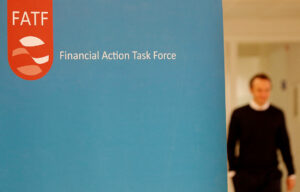Oct. 18, 2019. — REUTERS
THE Philippines needs to strengthen its anti-money laundering (AML) and combating financing of terrorism (CFT) regime, as it again failed to exit the “gray list” of the Financial Action Task Force (FATF).
Based on its February update released on Saturday morning, the FATF said that even if the Philippines has taken steps in improving its AML/CFT regime, the country should continue implementing action plans to address strategic deficiencies.
This includes effective risk-based supervision of designated nonfinancial businesses and professions (DNFBPs) and implementation of controls to mitigate risks linked to casino junket operations.
“The FATF urges the Philippines to swiftly implement its action plan to address the above-mentioned strategic deficiencies as soon as possible as all deadlines expired in January 2023,” the FATF said.
In a statement following the release of the FATF February update, the Anti-Money Laundering Council (AMLC) said the FATF does not call for enhanced due diligence measures against countries in the gray list.
“In the case of the Philippines, while still in the gray list, FATF’s latest recognition of the country’s progress in accomplishing the recommended action plans sends a positive signal to the international community on the country’s commitment to enhance its AML/CFT regime,” it said.
AMLC Secretariat Executive Director Matthew M. David said the improvements in the AML/CFT regime of the Philippines reflects the government’s efforts in curbing terrorism and incidents related to terrorism financing.
Still, the AMLC said the Philippines needs to strengthen supervision on DNFBPs, casino junkets, beneficial ownership information, money laundering and terrorism financing prosecution, and cross border declaration measures.
The support and compliance of the private sector is also crucial in strengthening the country’s AML/CFT regime, the AMLC said.
“This includes registration of DNFBPs with the AMLC, increased compliance with AML/CFT obligations, including filing of covered and suspicious transaction reports,” the dirty money watchdog said.
Companies should also submit beneficial ownership declarations with the Securities and Exchange Commission (SEC), it added.
In January, President Ferdinand R. Marcos, Jr. directed all concerned government agencies to complete their respective deliverables within 2024 to hasten the country’s exit from the gray list.
All the deliverables are in the government’s National Anti-Money Laundering, Counter-Terrorism Financing, and Counter-Proliferation Financing Strategy 2023-2027.
“As we continue following the marching orders set by the President, a whole-of-nation approach remains vital moving forward. We are happy that the collaborative effort among agencies in addressing areas for improvement as suggested by the FATF has been cited,” Mr. David said.
He said the government is committed to strengthening its fight against financial crimes.
The FATF is a Paris-based inter-governmental body that was established in 1989. It sets global standards against money laundering and terrorist financing.
The gray list, or jurisdictions under increased monitoring, is a list of countries which are actively working with the FATF to improve their AML/CFT regimes.
As of February 2024, there are 21 countries in the list, including the Philippines. Barbados, Gibraltar, Uganda, and the United Arab Emirates were removed from the gray list and are no longer subjected to increased monitoring by the FATF.
Democratic People’s Republic of Korea, Iran, and Myanmar are in the FATF blacklist. These are high-risk jurisdictions subject to an FATF call on its members and other jurisdictions to apply countermeasures or enhanced due diligence measures. — Keisha B. Ta-asan
